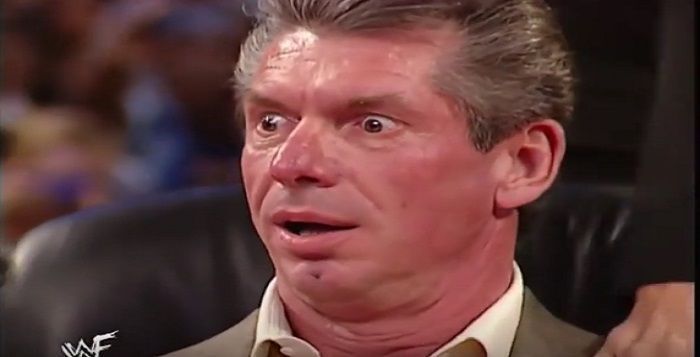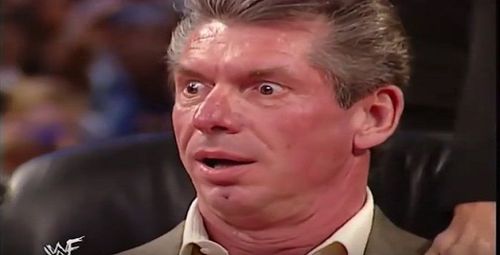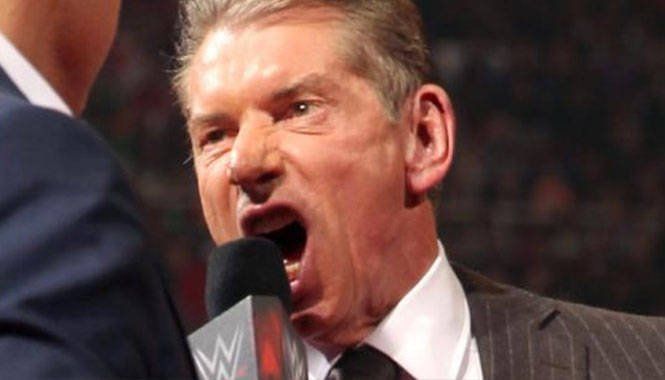
4 Reasons why it's time for Vince McMahon to go

Disclaimer: The views expressed in this article are the opinion of the authors and doesn't necessarily represent Sportskeeda's views.
Vince McMahon is without question the greatest promoter in the history of all combat sports - not simply professional wrestling. Though he inherited a good territory from his father, he went on to turn that territory into a worldwide empire.
He did so through savvy and a far-reaching vision. Vince gambled on the first WrestleMania and it paid off. He saw the potential of pay-per-view, cable, and then, internet streaming, and used all three mediums to change the way the sport is presented.
Yet, for all his success, Vince's track record with content and presentation has always been mixed. Howard Finkle needed to convince him to call WrestleMania by the name we know now and not "The Colossal Tussle," which was supposedly his original plan. WrestleMania itself wouldn't have happened without Starrcade a few years earlier.
Lest we also forget, most of WWF/E's biggest success stories fell into Vince's lap. Hulk Hogan was already the finished item from his career in the AWA. Stone Cold Steve Austin had to fight for his gimmick to get away from the Ringmaster character. The Rocky Maivia character, which Vince originally wanted, didn't work, so he had to turn heel and become The Rock. John Cena was almost fired in the early 2000s. Vince was essentially forced into the Attitude Era, which was, in truth, merely the next phase of an evolution that Paul Heyman and Eric Bischoff started.
Point being, Vince McMahon's creative tendencies and management habits have always been mixed, and sometimes downright poor. In recent years, however, these tendencies have seemingly been amplified, and have been getting worse every year. WWE promised a "new era" in December, but so far, it hasn't changed much. That's because you can't rely on those responsible for creating the problems in the first place to change them, so why should we be surprised?
With the latest round of (reliable) reports swirling, we are reminded of the reasons why, for the sake of the company he created, it's time for Vince McMahon to step aside.
#1 Erratic decisions plague the company

A few years ago, Asuka was infamously told that she wouldn't be going into WrestleMania as champion, but was to drop her title a mere 12 days before the big event. Two referees were fined for what went down at WrestleMania. A writer was fired (or quit) for comments Bret Hart made, referring to Vince McMahon by name at the Hall of Fame as if that were unusual! The decision for Sasha Banks and Bayley to drop the Women's Tag Team Titles - titles which they had been fighting to bring into existence for a year - was also supposedly made only very late.
These are just recent examples. Recall that a couple of years ago, the infamous decision to keep the Universal Championship on Brock Lesnar was made relatively late, and the decision for Seth Rollins to cash in his Money in the Bank contract at WrestleMania 31 was made a few hours prior to showtime. Every week, we hear of writers having to make changes several hours before showtime to please Vince McMahon, which unsurprisingly leads to inconsistent content. Road Dogg supposedly just departed for this very reason.
When looking at WWE, it's hard to come to any other conclusion but that it suffers from Founder's Syndrome:
- The organization is strongly identified with the founder; sometimes believed to be related to the founder's ego.
- The founder makes all decisions, big and small, without a formal process or input from others. Decisions are made in crisis mode, with little forward planning. Staff meetings are held generally to rally the troops, get status reports, and assign tasks. There is little meaningful strategic development or shared executive agreement on objectives with limited or a complete lack of professional development. Typically, there is little organizational infrastructure in place, and what is there is not used correctly. Furthermore, the founder has a difficulty to make proper decisions that benefit the organization because of their affiliation.
- There is no succession plan.
- The founder has difficulty adapting to changes as the organization matures.
- Key staff and board members are typically selected by the founder and are often friends and colleagues of the founder. Their role is to support the founder, rather than to lead the mission. Staff may be chosen due to their personal loyalty to the founder rather than skills, organizational fit, or experience. Board members may be under-qualified, under-informed or intimidated and will typically be unable to answer basic questions without checking first.
- Professionally trained and talented recruits, often recruited to resolve difficulties in the organization, find that they are not able to contribute in an effective and professional way.
- The founder begins to believe his/her own Press/PR
- The founder, who is usually the CEO or managing director, suffers HiPPO (Highest paid person's opinion), which means that often his or her ideas, decisions, etc. keep winning over the actual better ideas, decisions, etc.
- The founder becomes increasingly paranoid as the delegation is required, and/or business management needs are greater than their training or experience.
- The founder responds to increasingly challenging issues by accentuating the above, leading to further difficulties. Anyone who challenges this cycle will be treated as a disruptive influence and will be ignored, ridiculed or removed. The working environment will be increasingly difficult with decreasing public trust. The organization becomes increasingly reactive, rather than proactive. Alternatively, the founder or the board may recognize the issue and take effective action to move beyond it as outlined below.
Some or all of these describe much of the reporting about WWE as an organization. Vince McMahon's increasingly erratic decisions are holding the organization down, which often seems less an organization than a vanity project, at least as far as the presentation of the content goes.
The boss is still unable to let go of his creation and hand it over to the next generation. His attachment to the WWE brand is reversing the fortunes of the company rather than accelerating it forward.
The departure of Vince from the scene should make way for more professionalism and consistency backstage.